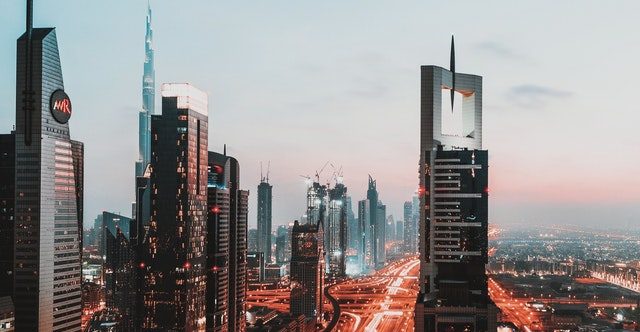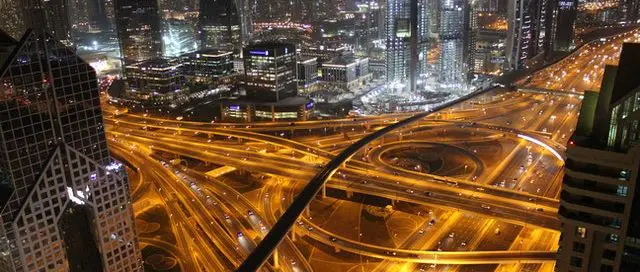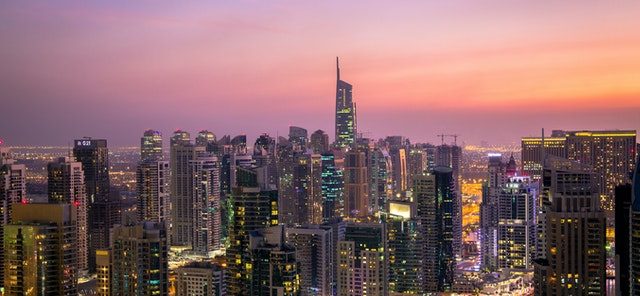More and more cultures have been integrating technology with their day to day operations. However, this is now going further than just implementing tech features alone; in fact, a handful of cities have truly embraced the switch to a digital world and have been trailblazing the way for the smart city model. And, of these, it seems almost irrefutable that Dubai is up there with the best.
But what is it that has made Dubai such a powerful contender in the smart city sector? Perhaps part of its incredible success can be attributed to the tech strategies Dubai has implemented that have made it one of the global leaders. And today, we’ll be looking at some of the five most prominent strategies that have made Dubai the smart city power that it is today.
What Makes Dubai a Smart City?
The smart city Dubai has become so successful by simplifying public services, encouraging collaborative development and planning, creating autonomous and smart transportation services, and focusing on improving the environment.

What is a Smart City?
Before we look any further, we need to start by considering the obvious question: what is a smart city like Dubai? Indeed, a smart city is a relatively new concept; however, more and more cities are following Dubai’s lead and jumping on the smart city design trend.
A smart city is, at its simplest, a city that has implemented intelligent information and communication technologies. In short: picture those smart systems you might already have in your home, but scale them up to a city-wide standard, and it becomes clear to see just how much Dubai has invested in technology overall.
Of course, the true definition of a smart city is more than just its ability to invest in tech. Undoubtedly, a smart city needs to have integrated smart technologies such as artificial intelligence (AI), machine learning, and the Internet of Things (IoT) that support the economy’s overall efficiency.
Notably, smart cities often use these systems to help with management systems, such as traffic control and the like; however, in some cases, AI has also been used in smart cities to help with factors such as pollution and other environmental concerns.
Why Has Dubai Invested in Smart City Design?
The potential benefits that AI can offer are numerous. After all, with the rate of urbanization massively increasing, and around 66% of the total global population being anticipated as living in urban environments by 2050, the demand for these technologies and smart changes will likely only continue to grow.
Of course, Dubai – and, by extension, the UAE in general – is at the forefront when it comes to the adoption of new technologies. In fact, the penetration rate for mobile cellular subscribers for 2013 alone – that’s nearly a decade ago, now – was a staggering 193%, with over 16 million users. This simple figure alone goes a long way to demonstrating why Dubai has been one of the earliest adopters of smart technologies from a city-wide perspective.
The Top 5 Strategies That Helped Dubai Become a Leading Smart City
Smart cities offer countless benefits. Not only are they more environmentally friendly, but they’re often safer places to live and work. This gives smart cities a massive appeal over the traditional, busy, and poorly-managed structure of cities in the past.
Over the last few decades alone, the population of Dubai has skyrocketed thanks to its involvement in the technology industry. In fact, the city saw a staggering annual growth rate between 1993 and 2013 of 6.5% (and increasing each year).
As such, the overarching strategy that Dubai has implemented as part of its smart technology adoption is simple: it has aspirations to become a megacity. With this in mind, it becomes easier than ever to understand the main objectives of how Dubai planned to achieve this: By implementing smart technologies in all key areas of life, it has allowed the city to revolutionize the use of technologies.
But how come Dubai has rapidly grown to become a leading smart city in this day and age? There are several pivotal factors contributing to Dubai’s staggering growth. The top 5 strategies that helped Dubai achieve this title may include the following points.
1 | Smart Life and Society
One of the first strategies implemented as part of the smart city project in Dubai was the creation of its smart life and society policy. More specifically, the project aimed to create a “smart, liveable, and resilient city.” This might seem a little vague, but some of the key elements of this strategy include the goal to:
- Simplify lifestyles by enhancing connectedness throughout the city
- Ensuring that ICT enablement is rolled out at all opportunities to enhance the ease of accessing resources and the availability and reliability of critical infrastructure for residents
- Encouraging collaborative development and planning throughout the UAE and within Dubai
- Guarantee that all stakeholders involved with Dubai are committed and collaborative with the project’s goals to deliver more sustainable, integrated smart living for residents.
- The development and roll out of streamlined social, educational, and cultural experiences to enhance residents’ quality of life.
2 | Smart Transportation
Another pivotal change that’s likely to alter the way that Dubai residents live and work (hopefully for the better) is the increase in smart transportation technologies, which are intended to make a few significant changes within the city. Not only will the city be more interconnected and easily accessible, but the rollout of transportation technologies will prove crucial for ensuring safe transport at all times, even as the city’s population continues to grow.
The role of autonomous and shared vehicles will likely sit at the forefront of this, helping to reduce traffic congestion within the city while also cutting the time for residents and tourists to commute, overall.

3 | Smart Economy
The smart economy goals for Dubai’s smart city revolution are perhaps among the most ambitious but could also have significant impacts on the city going forward. Most notably, the implementation will hopefully transition the city towards a more sustainable circular economy while also pioneering new rules and strategies for the city’s continued development. Encouragement will also be made towards emerging technologies and R&D investments as part of the goal.
4 | Smart Governance
Smart governance systems could revolutionize the way that Dubai, and the wider UAE, are governed. Some of the key changes anticipated as part of the smart governance strategies include the following:
- The transition towards a paperless, cashless government that relies on technological solutions over traditional opportunities.
- The elimination of physical visits and meets, with full digital adoption, instead of being rolled out to reduce the need to commute and limit the amount of congestion on Dubai’s ever-more bustling roads.
- Governmental bodies will focus more heavily on the demands of the people, providing optimized services and experiences for public services based on both visitors’ and residents’ demands and critical needs, supporting a happier and more productive community.
5 | Smart Environment
One of the final smart city strategies that Dubai rolled out was the announcement of its smart environment plans, which typically overarch all of the other strategies that we have mentioned today. Indeed, while the city’s goal has, first and foremost, revolved around implementing smart technologies that could improve the standard of living for residents, it also offers a further goal.
Throughout every strategy that Dubai has implemented, be it the revolutions in technology, its goal to create a smart economy and governance structure, and the like, every action is focused around also creating superior environmental changes. Each smart change is specifically tailored for the environmental impacts that it could bring, be it using more environmentally-friendly vehicles, planting more trees, and the like – all of which add credit to the city’s strategies.
However, in addition to the aforementioned environmental factors, another smart city change Dubai has rolled out is the creation of a smart energy grid. The smart energy grids are intended to support users with monitoring their own energy usage more easily in real-time, providing anticipation and reliability for consumers while also ensuring that suitable environmental strategies are taken to prevent the overconsumption of power.
The smart energy system’s main selling point has to be its incredible ability to “self heal.” During blackouts and power failures, the system can be rapidly reconnected to renewable energy systems instead, preventing downtime in the city for consumers while also encouraging the use of greener eco energy solutions.

Conclusion
Dubai – one of the key draws of the city for both residents and visitors alike surely had to be its incredible smart tech. Indeed, Dubai has invested heavily in the latest smart tech systems, and these have likely influenced many countries’ approaches.
With this in mind, it’s easy to see how today’s modern world has largely been impacted by the implementation of smart technologies – and Dubai is a global leader at the forefront of the revolution. As such, as one of the most influential smart city developments in the world, it’s clear that more and more people are looking to invest in real estate in Dubai.
If you want to learn more about smart cities, smart buildings, PropTech and Sustainability, feel free to take a look at our other blog articles.

